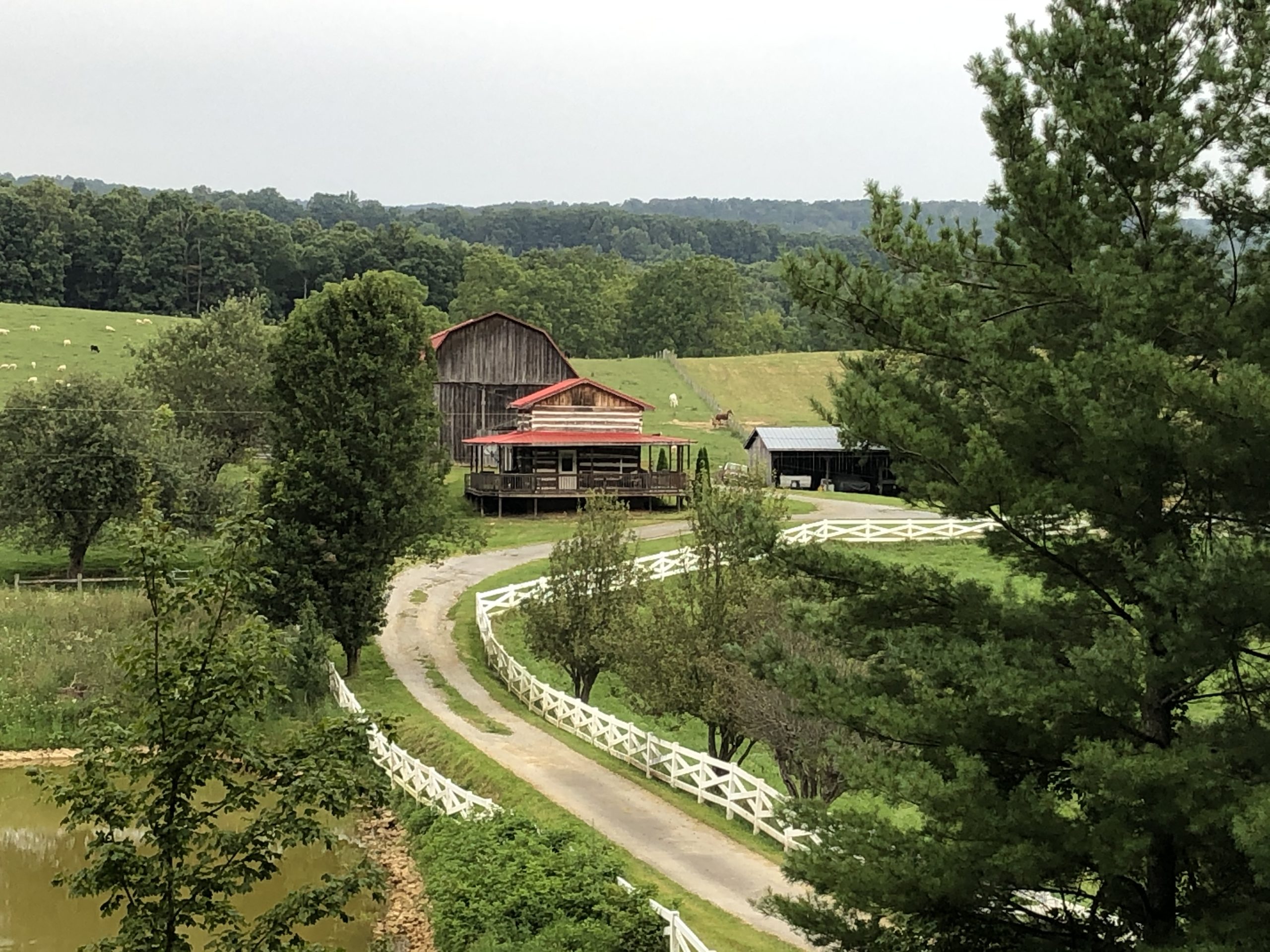What Things in a Day Count in Making for a Good Life?
The following is an entry from the journal of Bishop Mark Lawrence, August 13, 2020, written at a farmhouse near Wytheville, VA.
I had a good four-mile jog this morning over these rolling hills and country roads near this farmhouse where we are staying for a few days. I stopped occasionally to take photos of the farmlands, hillsides and distant mountains, as well as the wildflowers along the road, or just to walk awhile to take things in and appreciate the scenery—to learn again to be attentive.
Lord, I am so oriented to making minutes, hours, and days “count,” which is not always the same as being attentive or even less getting “… a heart of wisdom.” (Psalm 90:12) No, my focus is often more about getting things done or frankly sometimes just getting to the next thing. Even now, I find myself experiencing some inner stress that I will not make this vacation day “count”—while having no specific criteria for what “counts” or “matters” means or even looks like. Is it doing something like my morning jog over these rolling hills, farmlands and country roads? Yes, I believe so. Is it some reflective journaling—such as what I’m doing now? Yes, I think that is something that matters. But how much? And when is it that I’ve written something that I can point to on a vacation day and say, “That’s it!” that paragraph, that journal entry counts? Do other people even think in these terms or look at life from this perspective?
Eugene Peterson begins his book Run with the Horses: The Quest for Life at Its Best with a few sentences or questions that may at least be similar to what I’m trying to get at. “The puzzle is why so many people live so badly. Not so wickedly, but so inanely. Not so cruelly, but so stupidly.” To mention this book by Peterson raises yet another check off point. Whether an unusual jog (like this morning); a
hike (like I plan to do tomorrow); a meaningful journal entry; a significant family gathering (surely Macy’s baptism during the family outing to Presque Isle last Saturday “counts”); the tour of the Woodrow Wilson Presidential Library and Museum (that I did yesterday). Do each of these make a vacation day count? Does reading on a vacation day make the day matter? Well, it certainly seemed to during our vacations in Maine in the 1980s and 90s, especially when it was part of a study project I was pursuing, such as Gregory the Great, St. Augustine, St. Ambrose, Phillips Brooks, and others. Because one is reading about someone significant or a significant work such as Dante’s Divine Comedy or Eliot’s Four Quartets, does that make what one is doing significant? If I spend an hour or two this afternoon reading this good but not great book, Run with the Horses, will that help to make this vacation day count?
How about just sitting on this farmhouse porch looking out on this pond and the green hillside, an opening patch of blue in an otherwise cloudy sky, the cattle and sheep grazing, a hawk flying overhead; hearing the birds chattering; and feeling the light wind across my face. The swallows start swirling about in their darting and dancing flight to feed, as butterflies float on the breeze, and the wasps busy above in the wooden eaves. I watch a dandelion seed drift in the wind above the white cross fence its destiny unlike mine all but assured. When all suddenly changes with a banging thunderclap and a torrent of rain. The cattle, sheep and horses that were grazing together all huddle according to their kind and go their separate ways. The horses first to leave making their way I assume to their stable and barn. The sheep go down the hill out of my sight. The huddled cattle remain on top of the hill. The storm in time passes and a cool wind changes the temperature and a gaggle of geese land on the pond. Will all this count? Will this make the afternoon matter?
The American poet, James Wright, lying in a hammock on William Duffy’s farm in Minnesota, not all that different I suppose from this farm in Southern Virginia, lifted his eyes to see a chicken hawk floating over looking for home and experienced an epiphany of sorts that he had wasted his life. Did that, rather paradoxically, make the day or his life count? It certainly made a significant poem, at least for me; I have remembered it for 50 years as one of the better poems of his generation and of the “deep image” genre.
Finally, it may be best to pause and pose before myself an even more telling question. As Annie Dillard prophesied some years ago, “It’s not good days that are hard to come by but good lives.” So, here is an important question or two from early in Peterson’s book. “What does it mean to be a real man, a real woman?” What shape does mature, authentic humanity take in everyday life?” Here’s my catch—if good lives not good days are what are most needed and surely authentic humanity is defined by such, what things in a day or kind of days actually count in making for a good life? I no sooner write this sentence than Allison turns down the farmhouse road back from her day’s adventures, gladdening my heart. I think in the overarching scheme and stretch of life every good life surely must include such days as I’ve spent here. Days or moments that allow one time to observe, reflect, and think. As the psalmist prayed, “So teach each us to number our days that we may get a heart of wisdom.”
By Bishop Mark Lawrence, The Anglican Diocese of South Carolina

